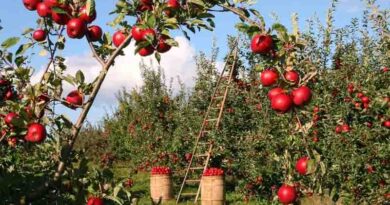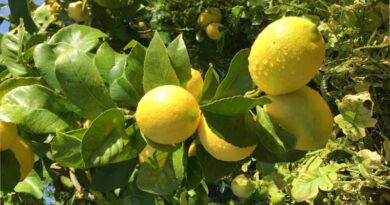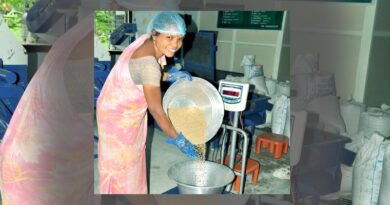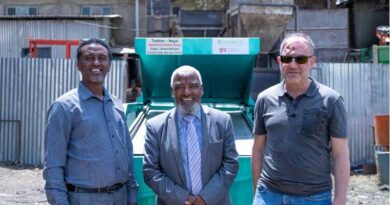Otago apple growers hoping for a return on profitability
13 June 2023, NZ: Export apple growers in Central Otago are anticipating a much better season than last year in an increasingly difficult market.
Remarkable Orchards owner Sid Birtles says last season’s returns were “catastrophic” – down 25 percent on the previous year – but this year he is more positive.
His Roxburgh East orchard is a 50:50 split of stonefruit and pipfruit, and in total there is 70ha in production.
He employs 19 full-time staff and 25 Vanuatuans through the Recognised Seasonal Employer (RSE) scheme, which he feels most fortunate about.
But compliance costs, accreditation and other regulations cost the orchard thousands every year.
Sid believes they are still in the hangover from Covid-19, “where there’s pressure on everyone to make a dollar.”
Out of the six varieties he grows, 50 percent are Royal Gala, because customers still want the reddest fruit. Twenty or thirty years ago, Red Delicious was one of the favourites, and Remarkable Orchards still grow a small amount of this variety.
“It’s all about the colour. Royal Gala, the Fuji varieties…we get a premium for the colour,” he says.
Australia remains the hardest country to get into, so most of his fruit heads off to Asia and Europe.
The quality of apples this season is very good, “the season has been favourable for fruit development,” he says, and Central Otago has enjoyed a long late summer.
Further south in Ettrick, Stephen and Sally Darling at Darlings Fruit have been a part of the Central Otago fruitgrowing community for many years, along with Stephen’s brothers – with orchards in Ettrick, Roxburgh and Cromwell.
The couple have continued to expand the orchard, fruit packing and apple juicing operation, originally developed by Bill and Joyce Darling in 1963, and introduced many new varieties to keep up with world markets.
Stephen has been in this game long enough to know there are many risks to pipfruit growing. The length of time from picking, packing and then shipping the produce to offshore markets as far away as the United Kingdom, means final settlement can be up to six months later.
“One of the issues of apple growing is that there is no clear end to one season and the beginning of the next. You are pruning apples for next season while still packing and shipping from last season.
“Because of the uncertainty in most world markets, the time to ship to market is longer, as a consequence of Covid-19, and it’s not improving yet.”
He says markets are struggling to improve, wage levels have increased 38 percent in the last five years, while fruit value has not improved much.
“Five years ago we had a margin, but costs are now higher than ever.”
Stephen says even if you are growing a higher value apple, some overseas customers are not always prepared to pay the premium price.
“And then we’re competing with South Africa and Chile markets,” he says, who are producing them cheaper and supplying those same customers for significantly lower production costs.
“So now we’re becoming uncompetitive in the market,” he says.
The pipfruit industry has faced tough times before, and some Central Otago growers have already pulled out their apple trees and just concentrate on stonefruit instead.
“But we are becoming efficient producers,” and growing new varieties is one of those ways, Stephen says.
Darlings Fruit grows New Zealand Rose, New Zealand Queen, Dazzle™, Granny Smith, Cox’s Orange, Royal Gala, Honeycrisp, Fuji, Koru® and Kanzi®.
Older varieties such as Braeburn are now not profitable to export, while the heritage fruit is starting to make a comeback domestically.
Darlings Fruit is reliant on the export market for 90 percent of its sales, and has 28ha planted across its two orchards in the Teviot Valley. There is another 18ha of apricots grown for export as well.
Stephen says the outlook for apples is challenging, and there are not many of the older growers left in Central Otago.
The number of growers has reduced over the past ten years due to a lack of succession, and the increased pressures and lack of reward has “resulted in people losing heart,” in recent years, he says.
Panmure Orchards in Earnscleugh is an example of a grower who pulled out all of their pipfruit trees back in 2011 to concentrate on stonefruit instead.
A prominent Cromwell fruit grower stopped exporting apples this season, and another orchardist in Ettrick has decided to get out of fruit growing altogether.
“The lack of labour has been the hardest stress, and not being able to do it well, but we can’t blame it all on Covid,” Stephen says.
He believes if horticulture is to go back to a growth stage, growers need to regain confidence in profitability.
Growth in his own business has been as a result of the investment he made five years ago, but it takes that long to see results.
There is a wait time for new varieties to be ordered from the nursery, and then it takes a further few years for them to grow to full potential.
“We need to reposition New Zealand’s offering and have a cost structure that returns a profit margin again. People have been treading water or going backwards for the last few seasons.”
Future labour supply is critical to becoming a high value producer, he adds, but there are also increased costs to that as well, with the RSE scheme currently under review.
Stephen employs 33 RSE workers and they are crucial to his operation, but it is possible that an “unintended consequence” of the new review will be that staffing costs will increase and become unaffordable.
Central Otago only makes up five percent of New Zealand’s pipfruit export market, but only time will tell how much of this already small minority will continue in the future.
Also Read: ICAR signs an MOU with Amazon Kisan to guide farmers on the scientific cultivation of crops
(For Latest Agriculture News & Updates, follow Krishak Jagat on Google News)















